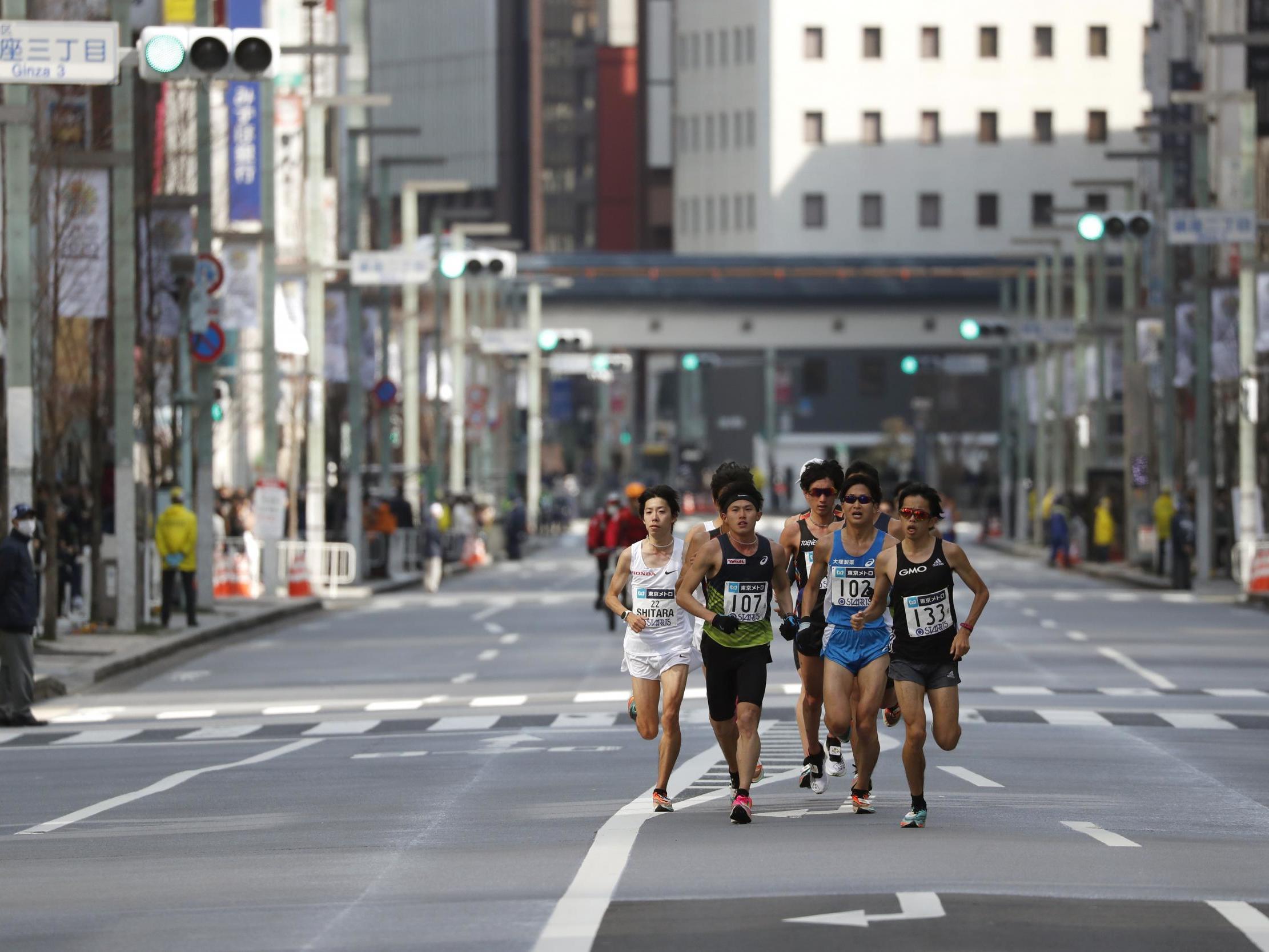Coronavirus: Empty streets greet runners in Tokyo marathon as spectators banned
Sporting events played in empty stadiums and all schools shut as Japan battles to slow spread of disease

Your support helps us to tell the story
From reproductive rights to climate change to Big Tech, The Independent is on the ground when the story is developing. Whether it's investigating the financials of Elon Musk's pro-Trump PAC or producing our latest documentary, 'The A Word', which shines a light on the American women fighting for reproductive rights, we know how important it is to parse out the facts from the messaging.
At such a critical moment in US history, we need reporters on the ground. Your donation allows us to keep sending journalists to speak to both sides of the story.
The Independent is trusted by Americans across the entire political spectrum. And unlike many other quality news outlets, we choose not to lock Americans out of our reporting and analysis with paywalls. We believe quality journalism should be available to everyone, paid for by those who can afford it.
Your support makes all the difference.Runners in the annual Tokyo marathon were greeted by eerily empty streets as the race went ahead but with almost no spectators because of the coronavirus outbreak.
In an effort to contain the spread of the disease, the organisers of the marathon only allowed about 200 elite professional runners to take part.
The 30,000 amateurs who would normally join them in the prestigious race were banned for fear the gathering would accelerate transmission of the coronavirus, also known as COVID-19.
Japan has recorded almost 1,000 cases of the disease, most of which were on the cruise liner Diamond Princess which had been held in quarantine in Yokohama harbour.
Eleven people have died from the coronavirus in Japan, prompting the authorities to take sweeping measures to clamp down on the epidemic.
As well as shutting all schools until the end of March, the prime minister Shinzo Abe also announced on Saturday a £2bn emergency economic fund to tackle the virus.
On top of reducing the marathon to just 200 elite runners, the organisers also urged spectators to stay away and only watch the race on TV, rather than crowd the pavements.
Normally, more than a million people turn out to watch the Tokyo marathon, but staff at subway stations in Tokyo could be seen holding signs telling travellers not to go and cheer on the runners.
Pictures from the race show a clutch of athletes pounding through deserted streets in the centre of Tokyo, normally a bustling metropolis, with just a handful of mask-wearing fans watching on from the pavements.
The marathon was not the only sporting event affected. The Japanese football league has postponed all fixtures for the next two weeks, and both horseraces and baseball games were held in stadiums closed to the public, with the sports playing out in front of tens of thousands of empty seats.
The government has however insisted the Olympic Games, due to start in Toyko on 24 July, will go ahead no matter what.
Some 11,000 athletes are expected to descend upon Japan, with a thousands more for the following Paralympic Games.
There has been speculation that to allow the games to continue, spectators may have to be barred as with this weekend’s sports.
“If the Olympics look like this, it’s going to be a sad sight,” said 68-year-old shoemaker Hiroshi Enomoto, one of the few spectators cheering on the marathon runners in the downtown area of Asakusa.
“There are maybe 20 per cent of the number of people who came to see the race last year. Normally, it’s so packed you can barely breathe,” Mr Enomoto said.
Join our commenting forum
Join thought-provoking conversations, follow other Independent readers and see their replies
Comments